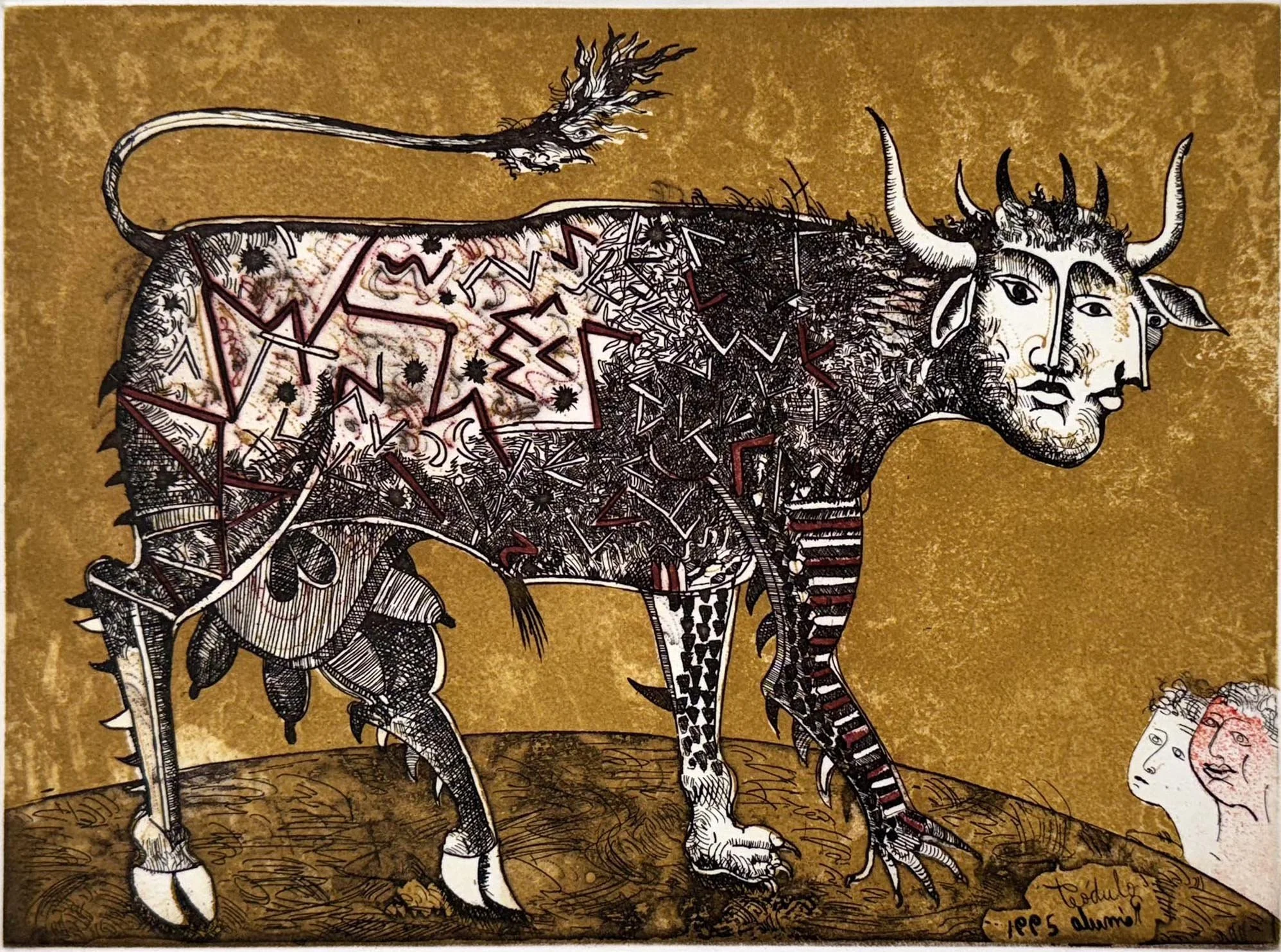Teódulo Rómulo - prints and biography
Teódulo Rómulo
Teódulo Rómulo (1943– ) is a distinguished Mexican printmaker and painter whose career bridges tradition and innovation. Deeply inspired by the myths, rituals, and customs of his cultural heritage, he has developed a body of work that reflects the symbolic richness of Oaxaca while remaining rooted in broader Mexican identity. His early paintings and engravings reveal a creative process guided by intuition and imagination, often highlighting animalistic motifs and primal themes that speak to a universal human connection with the natural and spiritual worlds.
Born in San Bartolomé Matlalohcan, Tlaxcala, in 1943, Rómulo embarked on his artistic training at the National School of Plastic Arts in Mexico City from 1966 to 1970. His development was further enriched through international study, including time at the celebrated Atelier 17 in Paris—an epicenter of modern printmaking—and at the Escuela Superior de Bellas Artes “La Cárcoba” in Buenos Aires, Argentina. These experiences exposed him to diverse cultural and technical influences, broadening his approach while reinforcing his deep attachment to Mexican traditions.
Over the course of his career, Rómulo has presented approximately 50 solo exhibitions and participated in around 60 collective shows, gaining recognition both in Mexico and abroad. His technical versatility is evident in his use of engraving, etching, and mixed printmaking methods, frequently animated by bold colors and intricate textures. These elements create compositions that balance abstraction with symbolic narrative, addressing questions of identity, memory, and cultural continuity.
Rómulo’s work continues to affirm the vitality of Mexican printmaking as a living tradition. His art not only preserves ancestral imagery but also transforms it into a contemporary visual language that resonates across cultures. Through decades of creative exploration, he has secured a place as one of Mexico’s most important interpreters of heritage and imagination.

